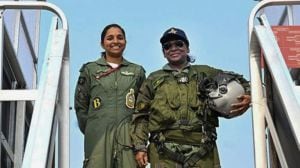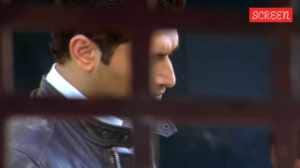Parties eye big catch in troubled ethnic waters
Three days before polling, the picture in Tripura is beginning to clear up at least in one aspect: the ethnic divide in the 33-lakh strong p...

Three days before polling, the picture in Tripura is beginning to clear up at least in one aspect: the ethnic divide in the 33-lakh strong population of the state is only deepening and no ‘‘healing touch’’ is visible.
The Congress is contesting only on the non-tribal seats, leaving those reserved for the Scheduled Tribes to its ally, the Indigenous Nationalist Party of Tripura (INPT). The INPT, formed with the merger of three major tribal political entities — the Tripura Upajati Juba Samiti, Tripura National Volunteers and the Indigenous People’s Front of Tripura — is headed by former rebel leader Bijoy Hrangkhawl, whom the ruling Left Front continues to consider a traitor and anti-national.
The INPT has focused on more safeguards for the tribals in the wake of its marginalisation by non-tribals who migrated in large numbers from erstwhile East Bengal and present Bangladesh. Of the 20 ST seats in the state, the Congress is banking on its tribal ally sweeping at least 16, after which it will require only 15 to oust the Left Front.
‘‘The unholy alliance between the Congress and the INPT is leading to a permanent divide with tribals and non-tribals moving further away from each other,’’ says Gautam Das, spokesman of the Left Front and editor of CPM mouthpiece Dainik Desher Katha. The Left Front is somewhat nervous over the alliance and today’s huge rally addressed by Sonia here has caused further concern. The Congress, obviously, doesn’t agree with the LF allegations. ‘‘There is no ethnic divide, it is the CPI(M) that is seeing a ghost. The Congress-INPT alliance has only helped reunite the tribals and non-tribals,’’ claims senior Congress leader Priyaranjan Das Munshi, who is here to ‘‘ensure a crushing defeat of the Left Front.’’ The Congress, interestingly, has said in its manifesto that it will give a ‘‘national character’’ to the regional party (INPT).
The tribals, once constituting about 90 per cent of the state’s population, are today just about 25 per cent. This has been the root cause of insurgency and separatist tendencies among the tribals, manifested in a series of massacre of non-tribals, beginning with the Mandai carnage of June 1980 that left over 120 dead. It was only on January 26 this year that armed tribal militants killed 11 non-tribals in the same Mandai area.
‘‘Bijoy Hrangkhawl is the founder of insurgency and patron of ethnic violence. Though he came back to the mainstream after his TNV signed an accord during Rajiv Gandhi’s time and was elected MLA in 1998, he continues to profess separatist tendencies. The recent such instance is his dangerous speech at Geneva in June last year in favour of separatism,’’ points out chief minister and CPI(M) leader Manik Sarkar. The Left Front government had registered a case against him after his return from Geneva but no further action was taken.
It’s not that the Left Front fights shy of stoking the ethnic fire. Unsigned graffiti in the state capital, painted on the tell-tale red cloth, sarcastically appeals to Hrangkhawl to attack more non-tribals and also provide guns to the Congress cadre. CPI(M) posters also remind the people — non-tribals — of abductions, killings and ransom, saying these are the tools with which Hrangkhawl intends to achieve ‘‘self-determination’’ for the tribals.
The ethnic divide is reflected in demographic changes in the state over the years. Non-tribals have been moving out to ‘‘safer’’ place: over one lakh people, mosty non-tribal Bengalis, have been rendered homeless since the Left Front assumed power 10 years ago.
The INPT has promised more powers for the Tripura Tribal Autonomous District Council and plans to convert it into ‘‘Borok Autonomous Council’’, apart from uniting the tribal groups under a new nomenclature ‘‘Borok’’ that will also have the Roman script.
The INPT also talks about ousting the illegal immigrants with the Indira-Mujib Pact of 1972 as the cut-off mark, apart from providing identity cards to the tribal people ‘‘along the lines announced by the Central Government.’’ Ordinary Bengali-speaking non-tribals say in private, ‘‘It is better to buy peace by supporting Congress-INPT alliance than living under the Left Front with which it has developed friction.’’ After all, the CPI(M) has alleged that INPT is the overground political front of the underground National Liberation Front of Tripura that allegedly has links with the ISI of Pakistan.





- 0117 hours ago
- 0217 hours ago
- 038 hours ago
- 0418 hours ago
- 0518 hours ago


























